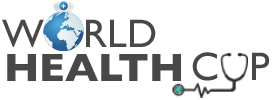
Technology has become a driving force in streamlining processes and improving patient care in the rapidly evolving healthcare landscape. One area where technology has shown significant benefits is in the management of electronic medical records (EMR). EMR systems have revolutionized certification processes in healthcare, enhancing efficiency, accuracy, and patient safety. Here are some of the advantages of EMR Philippines systems in certification processes:
Streamlining Certification Workflows
Traditionally, certification processes in healthcare involved extensive paperwork, manual data entry, and the need for physical storage. EMR systems eliminate these inefficiencies by streamlining certification workflows, including the issuance of fit to work medical certificate. The digital platform allows for seamless record-keeping, automatic data updates, and standardized forms, resulting in faster and more accurate certification procedures.
Real-Time Accessibility and Updates
One of the key benefits of EMR systems in certification processes is real-time accessibility and updates. Authorized healthcare professionals can access patient records instantly, allowing for quicker decision-making and more informed certifications. Moreover, any changes made to a patient’s medical history or treatment plan are immediately reflected in the EMR, ensuring that all providers are working with the most current information.
Enhanced Patient Safety and Care Coordination
EMR systems contribute to improved patient safety and care coordination during the certification process. With comprehensive medical records readily available, healthcare providers can identify potential risks, allergies, or interactions with medications, enabling them to make informed decisions to ensure patient safety. Furthermore, EMR systems facilitate better care coordination among different specialists involved in the certification process, promoting a cohesive and collaborative approach to patient care.
Reduced Administrative Burden
The adoption of EMR systems significantly reduces the administrative burden for healthcare facilities. Automated workflows, digital documentation, and streamlined processes decrease the time and effort required for certification tasks. This efficiency allows healthcare staff to focus more on patient care, leading to enhanced patient satisfaction and overall quality of healthcare services.
Data Security and Privacy Compliance
EMR systems prioritize data security and privacy compliance. Advanced encryption, secure access controls, and audit trails ensure that patient information remains confidential and protected from unauthorized access. Compliance with privacy regulations, such as the Data Privacy Act (DPA), fosters patient trust in the healthcare system.
Data Analytics for Continuous Improvement
EMR systems also offer valuable data analytics capabilities that can drive continuous improvement in the certification process and patient care. By analyzing trends and outcomes, healthcare facilities can identify areas for enhancement, optimize operations, and implement evidence-based practices to improve patient outcomes and operational efficiency.
Interoperability and Exchange of Information
EMR systems promote interoperability and the exchange of information among healthcare providers. This seamless sharing of data allows for smoother transitions of care, particularly when patients are transferred between different healthcare facilities. The ability to access a patient’s complete medical history from various locations enhances the continuity of care and reduces the risk of redundant or conflicting treatments.
Learn more about the advantages of employing EMR systems for streamlining the certification process in healthcare as you check out SeriousMD—an EMR, practice management, and telemedicine platform that provides solutions for more efficient access to healthcare services.

